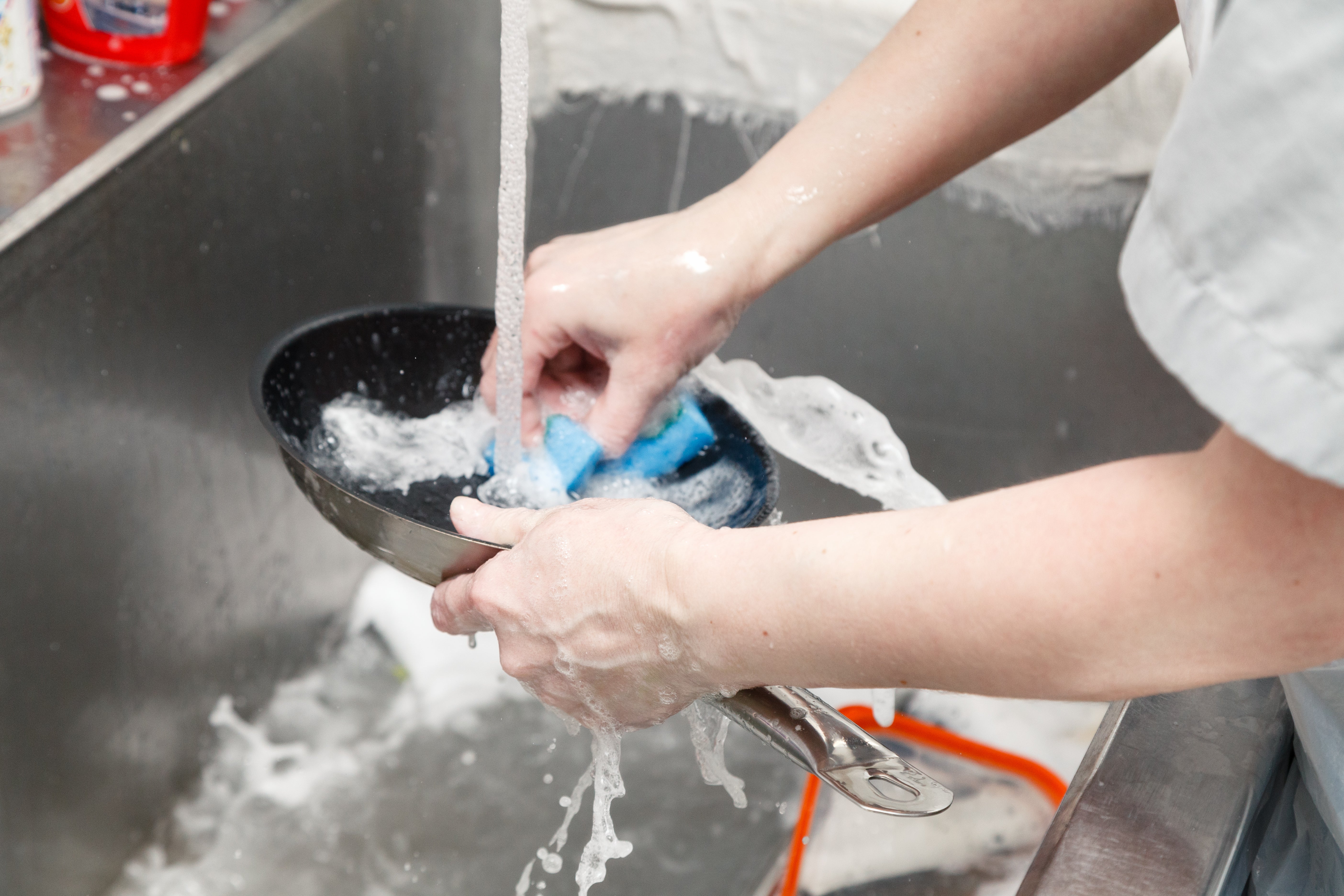Where have all the waiters gone? Unpacking hospitality’s staff crisis
Covid, Brexit and a snobby attitude towards the industry have left restaurants scrambling to keep up as the world reopens. Molly Codyre reports


Your support helps us to tell the story
From reproductive rights to climate change to Big Tech, The Independent is on the ground when the story is developing. Whether it's investigating the financials of Elon Musk's pro-Trump PAC or producing our latest documentary, 'The A Word', which shines a light on the American women fighting for reproductive rights, we know how important it is to parse out the facts from the messaging.
At such a critical moment in US history, we need reporters on the ground. Your donation allows us to keep sending journalists to speak to both sides of the story.
The Independent is trusted by Americans across the entire political spectrum. And unlike many other quality news outlets, we choose not to lock Americans out of our reporting and analysis with paywalls. We believe quality journalism should be available to everyone, paid for by those who can afford it.
Your support makes all the difference.Those who actively follow restaurants on social media may have seen a trend developing in recent weeks. Posts – often offering apologies, usually written with a tone of resigned frustration – outlining a reduction in opening hours. Padella, the famed pasta restaurant with outposts in Shoreditch and Borough Market, announced it would be closed for two lunch services. Canalside Italian restaurant Ombra shared a reduction in opening hours for the foreseeable future. Both cited staff shortages as the reason.
Elsewhere, if people weren’t closing, they were certainly – and regularly – advertising their job vacancies. “We used to get 50 to 60 applications for a job vacancy,” says Jose Etura of Sabor Restaurant on Heddon Street. “Now we’re lucky if we get four or five.”
Analysis by UK Hospitality found 80 per cent of businesses reported vacancies for front-of-house roles, 85 per cent for chef roles, 47 per cent for housekeeping and 43 per cent for assistant or general managers.
“The lockdowns messed up restaurants quite badly,” Mitshel Ibrahim, the owner of Hackney-based Ombra, tells me. “We were the first to close and the last to reopen, so we lost the opportunity to provide a stable place of work for many.” Ombra is no longer opening on Tuesdays or Wednesdays and is cutting down its lunch services.
All of this begs the question – why? “It’s been a combination of two factors that created a perfect storm for us. The first one was Covid – and the lockdown. The second thing is Brexit,” says Etura.
Ibrahim echoes this: “The added stress and logistics of Brexit meant a lot of people returned home to the EU – initially because of Covid, but have now definitely decided to stay. This was a huge part of our workforce.”
Etura is worried that this could lead to the closure of many restaurants, especially smaller establishments that are unable to compete with larger eateries that have financial backing.

The problem, however, seems to run deeper than a simple exodus of staff. Etura mentions that in his entire career, he’s never received a CV for a kitchen porter role from a British national.
Lauren Barnett, the founder of Home Hospitality and Actually Good Chef Jobs, expands on this sentiment, saying that the instability caused by the lockdowns has “added to an already poor perception of careers in our industry from school leavers”. Hospitality “is not deemed by many as a good industry for a long-term career”, she adds.
While Brexit and Covid may have driven many foreign workers home, there seems to be a dearth of Britons looking to fill positions, because of the negative connotations that a career in the industry holds. “I think the class system has a lot to do with how hospitality – and other service industries – are seen in the UK,” says writer and academic Anna Masing. “There is a perception of what it means to offer service, and who should be in these positions. It is the idea of ‘in service to’ as opposed to seeing it as a talent-based career path.”
People look at restaurant work and see shift-based hours that don’t require academic achievements – two concepts that seem to stand against the western world’s concept of aspirational work. These ideas fail to account for the intricacies of the hospitality industry, the multitude of potential jobs and the real skill required to succeed in the area.
From my interactions with industry professionals, I have found it to be a sector built on a true passion for the job – it is what drew me to food in the first place. The level of knowledge that staff have is unparalleled. The intellectual stamina required to memorise ever-changing menus, lengthy wine lists and niche ingredients is on par, or even more than, that seen in your typical office job.
It is not just perception that comes into play here, though. Many people I spoke to mentioned the impact that working conditions have on hospitality staff, with the time off over lockdown allowing a lot of people to discover the benefits of a slower lifestyle. Suddenly they had time to spend with their kids, they had the chance to exercise properly and eat regular meals, their lives were no longer dictated by fast-paced, often abnormal working hours, where meals were often forgotten and shifts were long.
“We absolutely need to be accountable as an industry for our shortcomings and begin to improve in many ways to bring people back into the industry,” says Barnett. “Some businesses will need to take responsibility for the treatment of their teams in the past, including long working hours, many of which will have been unpaid.”
This is exactly something the Gaucho restaurant group has been working to do. “At the beginning of the pandemic, we made a promise to our people to retain and invest in them, their wellbeing and finances,” says CEO Martin Williams. This resulted in a staff survey about their needs in the workplace and subsequent changes that included starting 2021 “with enhanced staff areas and food”. As a result, their staff retention has been better in the past 15 months than in the year preceding the pandemic.

Beyond individual measures to try to ensure staff retention, those I spoke to had a few ideas about how the crisis could be managed going forwards. While most were sceptical about anything changing in the short term, it was suggested that a change in immigration strategy could have an impact. “It would be great if the government reconsidered its policies and allowed not just ‘highly skilled’ workers but also the people that can fill the gaps in the industry,” says Etura. “If we don’t help the hospitality sector, the whole economy is going to suffer.”
Masing believes there’s no immediate fix, but that education around the range of jobs and career progression opportunities in the industry would help in both the short and long term. Barnett discusses ideas along the same lines, noting that, “Joining this incredible industry will offer you a path to many careers; recruitment, food photography, food writing, menu development, marketing, events management and so many more.”
She also mentions a new government initiative, Into Hospitality, that she has been working on. It targets hard to reach communities in London, offering a five-day training course and recruitment assistance afterwards. This kind of work benefits both communities and businesses alike, reducing skills shortages and helping to fill the gaping staffing holes.

Interviewing industry professionals for this piece offered a poignant yet sombre view of the hospitality sector right now. While there were many negatives discussed, what really stuck with me was the gratitude from restaurateurs for the staff they do have.
Etura mentions that the restaurant feels like it’s running better than ever, thanks to their strong core selection of staff that he feels incredibly lucky to work with. Ibrahim says he has immense gratitude for a solid and valuable team with everything else being so up in the air.
There is much that can be done at every level, from the government all the way down to the diner, but what is clear is restaurants need our support. Now, more than ever.
Join our commenting forum
Join thought-provoking conversations, follow other Independent readers and see their replies
0Comments